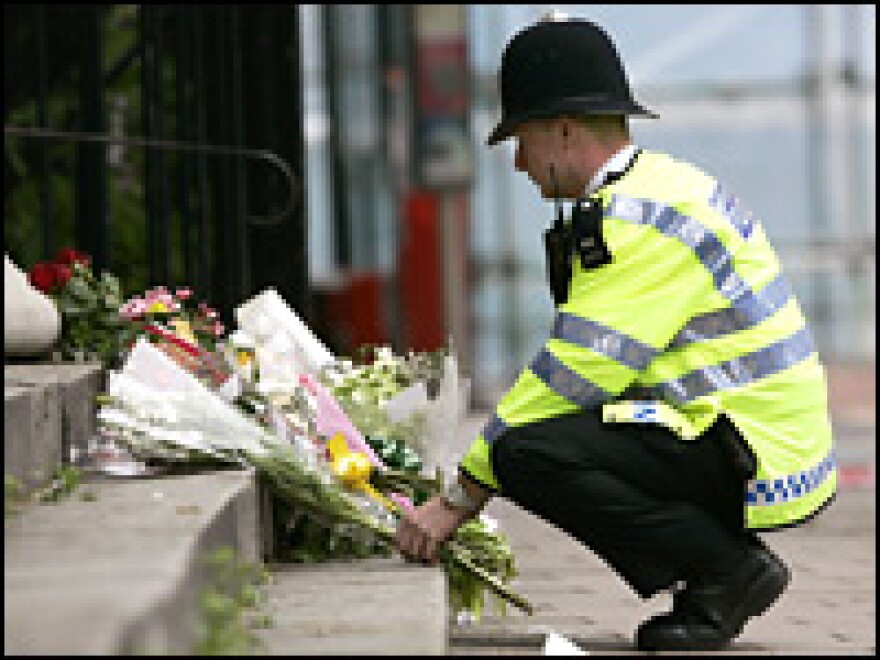
One year ago today, four suicide bombs killed 52 people on the London transport system. Services will commemorate the anniversaries of the tragedies in the British capital, but to most British civilians, the attacks haven't led to an "at-war" mentality.
The morning attacks on three trains and a double-decker bus injured more than 700 people and forced London's rush-hour traffic to a standstill. And although there were far fewer casualties and less damage than the attacks of Sept. 11, 2001, the stories and the horror of it all sounded eerily similar.
John Falding remembers every detail of that morning. His girlfriend, Anat Rosenburg, had just left their central London apartment for work. She was on her cell phone to John when suddenly she stopped speaking.
"I heard unworldly screams in the background, but I didn't hear her, nor an explosion, and then after a couple of seconds her mobile went dead, and it kept going to voicemail and I knew something terrible had happened," Falding said. Anat Rosenburg was killed on the Number 30 bus, along with 12 other people.
Peter Neumann directs Defense Studies at King's College London. He says that dealing with terrorism is not new to Londoners, because they had 30 years of dealing with attacks by the Irish Republican Army.
"It certainly changed the awareness that there is an acute threat from Islamic terrorism in the U.K.," Neumann said. "But it did not fundamentally change the way of life in Britain."
The differences between the attacks in Britain and the United States -- and the responses of the two governments -- are distinct.
British leaders decided that the best way to thwart terrorists, Neumann says, was "to carry on with business as usual. So the scale of legal changes, the overall government reaction, was less of an overreaction than what we saw in the U.S."
The idea that the United States overreacted after 9/11 is quite strong in Britain. Many Britons opposed the invasion of Iraq, seeing no connection between al-Qaida and Saddam Hussein.
And President Bush's insistence that America is at war is not matched by a similar feeling among the British public. At Euston station, where Anat Rosenburg was killed, school principal Neil Hutchison was waiting for a train recently when he was asked about the attacks.
"It was definitely a seminal moment, to realize we are so vulnerable," he said. "No one was safe after that day." When asked if Britain is at war, Hutchison responded, "No, Britain is not at war. We are involved in world politics, and it's a political situation being acted out."
Anne Tuck, visiting London from the Midlands with her friend John Martin, agrees. "I think it was a big shock," she said. "But no, we don't say we're at war, do we?" "We don't use the word 'war,' definitely not," Martin said.
But the British government has adopted new legislation to combat terrorism. One new law extends the period suspects can be held without charge to 28 days from 14. Another bans the glorification of terrorism.
And of course, security has been stepped up, and policing is tighter. Deputy Assistant Commissioner Peter Clarke, the head of the Metropolitan Police Anti-Terrorist Branch, says that "In the last year what we've seen is an unrelenting, unremitting set of streams of intelligence which demand investigation."
"Since last summer, 41 people have been charged in the United Kingdom with terrorist-related offences," Clarke said. And citing recent intelligence that has him very concerned, Clarke said that Britons should brace themselves for the possibility of more attacks.
Copyright 2022 NPR. To see more, visit https://www.npr.org.


